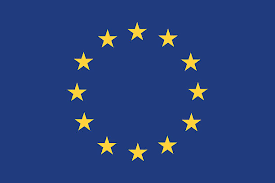
SNS JU August 2024 Newsletter
The Commission launches a stakeholder consultation on the Digital Europe Programme
The consultation seeks to gain insights into the needs of stakeholders related to the digital transformation, DIGITAL’s benefits and possible improvements. As such, it will gather diverse perspectives from small and medium-sized enterprises to non-governmental organisations, academia, social partners, public authorities, and other public and private organisations and citizens from EU Member States and associated countries.
The Commission will then publish a summary report of the consultation findings and the replies from stakeholders on ‘Have Your Say‘. The feedback received will inform reflections on possible improvements within DIGITAL, as well as help guide design of future initiatives. The consultation will close on 20 September 2024.
The Digital Europe Programme is an EU funding programme with a budget of over €7.9 billion, focused on bringing digital technology to businesses, citizens and public administrations. The Digital Europe Programme complements the funding available through other EU programmes, such as the Horizon Europe (for research and innovation) and the Connecting Europe Facility (for digital infrastructure), the Recovery and Resilience Facility, the Structural funds, and others.
The Digital Europe Programme is implemented by multiannual work programmes.
Horizon Europe

Horizon Europe is the EU’s research and innovation programme for 2021-2027 with a budget of €95.5 billion.
It tackles climate change, helps to achieve the UN’s Sustainable Development Goals and boosts the EU’s competitiveness and growth.
The programme facilitates collaboration and strengthens the impact of research and innovation in developing, supporting and implementing EU policies while tackling global challenges. It supports creating and better dispersing of excellent knowledge and technologies.
It creates jobs, fully engages the EU’s talent pool, boosts economic growth, promotes industrial competitiveness and optimises investment impact within a strengthened European Research Area.
Connecting Europe Facility – Digital (CEF Digital)
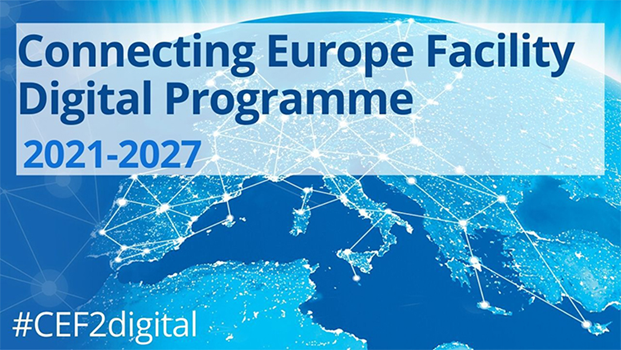
The digital part of the Connecting Europe Facility (CEF Digital) will support and catalyse both public and private investments in digital connectivity infrastructures between 2021 and 2027.
Together with other funding instruments, including the Recovery and Resilience Facility and the InvestEU, CEF Digital will help support an unprecedented amount of investments devoted to safe, secure, and sustainable high-performance infrastructure. In particular, Gigabit and 5G networks across the EU. This action will be important in supporting Europe’s digital transformation, as outlined in the Path to the Digital Decade proposal.
The main actions foreseen under CEF Digital include:
- Deploying very high-capacity networks, including 5G systems, in areas where socioeconomic drivers are located (see 5G connectivity for smart communities);
- Guaranteeing uninterrupted coverage with 5G systems of all major transport paths, including the trans-European transport networks (see 5G coverage along cross-border corridors);
- Deploying new or a significant upgrade of existing backbone networks, including submarine cables, within and between Member States and between the Union and third countries (see the European Quantum Communication Infrastructure Initiative, Backbone networks for pan-European cloud federations, Backbone connectivity for Digital Global Gateways);
- Implementing and supporting digital connectivity infrastructure related to cross-border projects in the areas of transport or energy (see Coordination and Support Action).
The Digital Europe Programme invests over €108 million in European digital skills, capacity, and tech
A new set of calls has been launched from the 2023-2024 Digital Europe work programme boosting work in skills, Digital Decade Multi-Country Projects, Local Digital Twins, and tackling disinformation.
- The European Commission launched a new wave of calls for funding opportunities under the Digital Europe Programme (DIGITAL), allocating over €108 million to bolster the EU’s digital and technological capabilities. These investments will propel Europe into a leading position, with a focus on artificial intelligence (AI), specialised education programmes, support for Multi-Country Projects, and tackling disinformation. The deadline for the calls is 21 November 2024. These calls roll out strategic investments that will be instrumental in making this Europe’s Digital Decade.
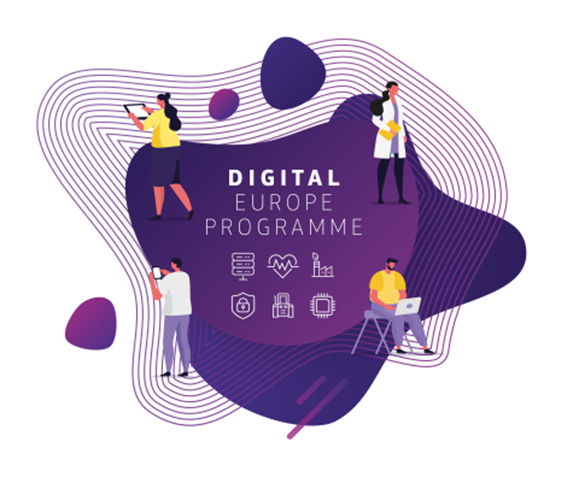
Cybersecurity
€35 million will be dedicated to projects protecting large industrial installations and critical infrastructures. Another €12,8 million will be invested to further establish, support and enlarge both national and cross border Cybersecurity Operation Centres (SOCs). €35 million will be devoted to the deployment of state-of-the-art cybersecurity technologies and tools.
Specialised Education Programmes
The DIGITAL programme will invest €55 million in advanced digital skills, more specifically specialised education programmes in key digital areas: virtual worlds, edge computing, quantum computing, photonics, and robotics and automation.
Support for Multi-Country Projects
With an indicative budget of €25 million, the DIGITAL programme will facilitate the implementation of Multi-Country Projects (MCPs), including where the European Digital Infrastructure Consortia (EDICs) have been chosen as implementation mechanism. These large-scale projects are designed to help the EU reach the digital targets and objectives as laid out by the Digital Decade Policy Programme.
Local Digital Twins
In a significant push to advance the connection, development, and deployment of Local Digital Twins (LDTs) across the EU, the DIGITAL programme will invest €20 million. The successful projects will aim to help cities and communities harness economies of scale in data platform development and AI-based solutions.
European Digital Media Observatory
An investment of €8 million from the DIGITAL programme will help the independent regional and national hubs (EDMO) to analyse digital media ecosystems.
Call for proposals – Accelerating the best use of technologies (DIGITAL-2024-BESTUSE-07, 1 topic)
Call for proposals – Advanced Digital Skills (DIGITAL-2024-ADVANCED-DIGITAL-07, 1 topic)
2nd report on the State of the Digital Decade calls for strengthened collective action to propel the EU’s digital transformation
The Commission published the second report on the State of the Digital Decade, providing a comprehensive overview of the progress made in the quest to achieve the digital objectives and targets set for 2030 by the Digital Decade Policy Programme (DDPP).
This year, for the first time, the report is accompanied by an analysis of the national Digital Decade strategic roadmaps presented by Member States, detailing the planned national measures, actions and funding to contribute to the EU’s digital transformation.
The Commission’s analysis shows that, in the current scenario, the collective efforts of Member States will fall short of the EU’s level of ambition. The identified gaps include the need for additional investments, both at EU and national levels, in the areas of digital skills, high-quality connectivity, uptake of Artificial Intelligence (AI) and data analytics by enterprises, semiconductor production and start-up ecosystems.
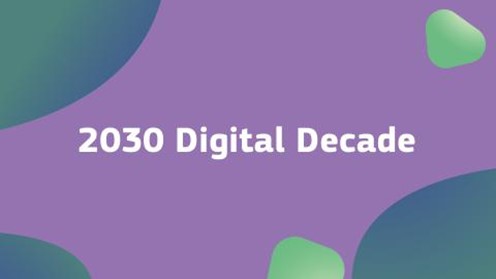
Study on the Impact of the Next Generation Internet Initiative

A study has been published evaluating the impact of the Next Generation Internet initaitive projects based on various criteria such as alignment with EU Digital rights, enabling EU legislation, impact on standardisation, provision of alternative solutions, and sustainability.
The study indicates that the Next Generation Internet (NGI) initiative has had a significant impact in shaping a sustainable, sovereign Open-Source tech landscape in Europe that aligns with EU policies and values.
It also indicates that the projects funded by the initiative prioritise the rights of individuals, promote freedom of choice, enhance safety and security, promote sustainability, and foster active participation in the digital public space.
Furthermore, the study found that NGI projects contribute to enabling a range of EU legislation, with a focus on supporting general data protection regulation (GDPR) compliance, the Digital Services Act (DSA) and Digital Market Act (DMA), the Cyber Resilience Act, EU digital identity initiatives, ensuring freedom of choice online, and supporting the concept of digital commons.
European Artificial Intelligence Act comes into force
The European Artificial Intelligence Act (AI Act), the world’s first comprehensive regulation on artificial intelligence, enters into force.
The AI Act is designed to ensure that AI developed and used in the EU is trustworthy, with safeguards to protect people’s fundamental rights. The regulation aims to establish a harmonised internal market for AI in the EU, encouraging the uptake of this technology and creating a supportive environment for innovation and investment.
The AI Act introduces a forward-looking definition of AI, based on a product safety and risk-based approach in the EU.
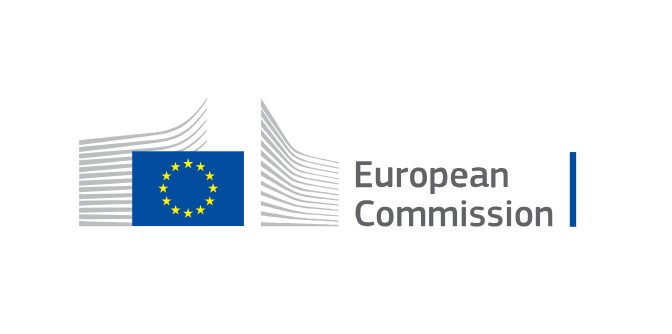
The European Commission unveils a new tool to help SMEs self-assess their digital maturity.
The European Digital Innovation Hubs (EDIHs) launched a Digital Maturity Assessment tool that will help SMEs to identify their strengths and weaknesses in the digital transformation of their business.


The tool is open to all companies and freely available in 32 languages.
Businesses can use this tool to evaluate their maturity across six key criteria: digital business strategy, digital readiness, digital skills improvement, data management, automation and intelligence, and green digitalisation. With this insight, SMEs can plan their digital growth more effectively and receive tailored advice from their local EDIH. Additionally, other actors like the Enterprise Europe Network and industrial clusters can leverage the Digital Maturity Assessment tool to help their SMEs digitalise and use artificial intelligence.
Comprising 228 hubs, the EDIH Network is dedicated to bolstering the digital capabilities of companies and public sector organisations. With 151 hubs funded by the Commission’s Digital Europe Programme and 77 backed by national or regional resources, the network will be a catalyst for digital innovation and growth across Europe.
The Digital Maturity Assessment tool will help achieve the Digital Decade target of 75% uptake of AI, cloud and/or big data by European companies. The network of European Digital Innovation Hubs (EDIHs), together with the AI Office now in full swing, will be a one-stop-shop for SMEs and public services seeking AI and digital transformation solutions.
Find more information about the European Digital Innovation Hubs (EDIHs) and the Digital Maturity Assessment tool.
Open Calls update
A number of the SNS JU phase one projects are planning to run open calls to either augment or validate the capabilities, functionalities and performance of their experimental platforms or to add use cases to their portfolio of demonstrated services.
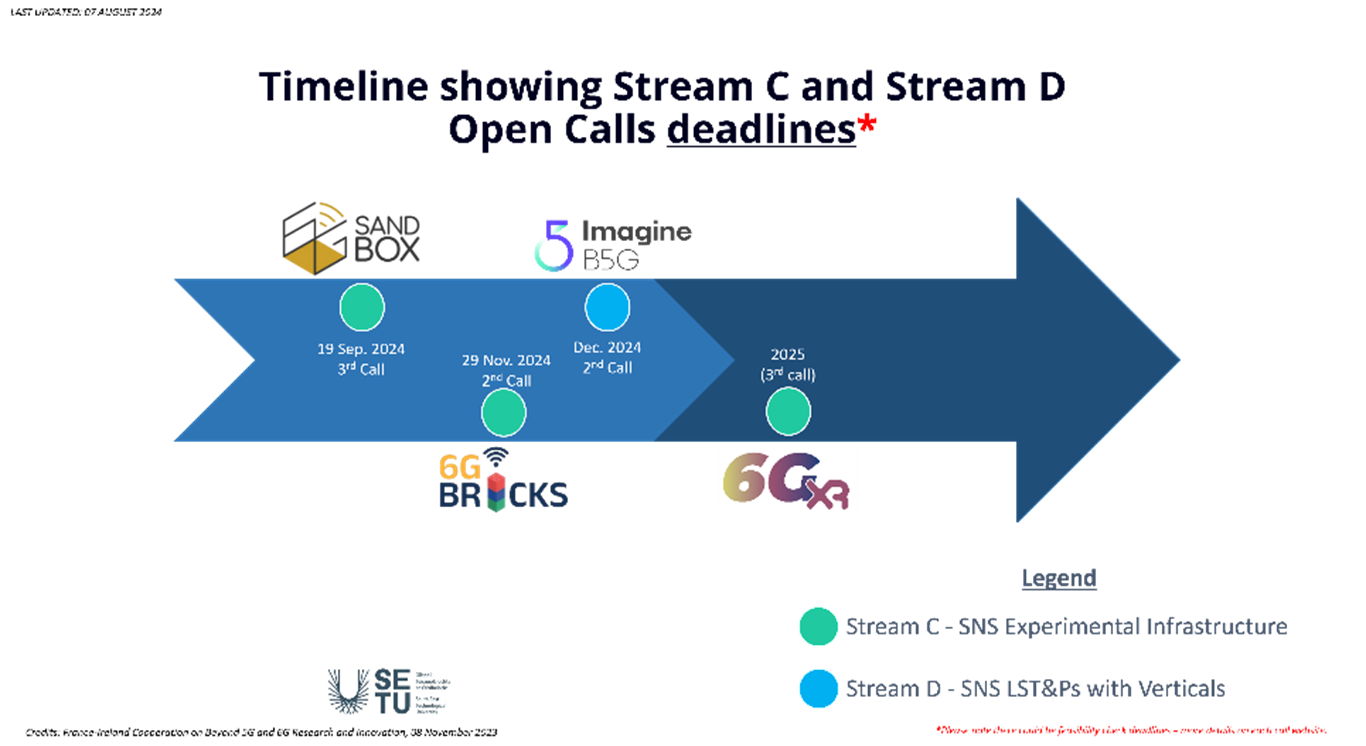

- PIMRC 2024, 2-5 September 2024
- 1st International Workshop on Value-driven Ethical Networking in 6G (ETHICNET), co-located with IEEE PIMRC 2024, 2-5 September 2024
- NetworldEurope and CCSA – Workshop: Future Core – New Potential to Connect Everything Intelligently, 19 September 2024
- European Conference on Optical Communication (ECOC), 22-26 September 2024
- Sustainable Places 2024, 23-25 September 2024
- MobiCom 2024: The 30th Annual International Conference on Mobile Computing and Networking, 30 September – 4 October 2024
- 6G Forum, 1 October 2024
- Online workshop on ISAC towards 6G
- VTC Fall 2024 (100), 7-10 October 2024
- ETSI security conference, 14-17 October 2024
- IEEE Future Networks World Forum 2024, 15-17 October 2024
- Adaptive Frameworks and Global Architectural Evolution (ATHENA 2024), 21-23 October 2024
- 5G Techritory 2024, 30-31 October 2024
- International Conference on 6G Networking, 21-24 October 2024
- ETSI Software & Standards for Smart Networks & Service, 12-14 November 2024
- IEEE Global Communications Conference 2024, 8-12 December 2024
- ETSI-ITU Symposium on ICT Sustainability: Standards Driving Environmental Innovation, 11-12 December 2024
- MWC 2025, 3-6 March 2025
- Hannover Messe, 31 March – 4 April 2025
- EuCNC & 6G SUMMIT 2025, 3-6 June 2025

